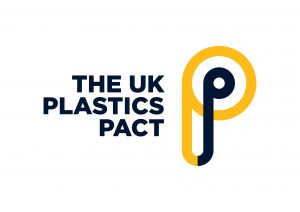
CRESTING has joined the UK Plastics Pact, launched in 2018 by WRAP. This collaborative initiative unites public, private and social actors to transform the plastic economy in a sustainable and circular manner.

Plastics are the most ubiquitous materials of modern times. Polymers have become essential for every aspect of our economy, including healthcare, food and transportation and electronics. They are inexpensive and energy saving, which allows them to effectively substitute expensive and increasingly scarce rare materials like metals, woods and natural fibers. However, the lack of effective mechanisms for their recycling, recovery and disposal has turned them into a critical environmental problem. In Europe, 28.8 million tons of plastic are generated every year (representing over 10% of global plastic waste). Only about 30% of EU plastic waste is recycled (of which over 56% is recycled outside of the EU, often in suboptimal conditions), 39% is incinerated, and 39% is landfilled. Between 150 and 250 tons of plastic waste enter EU oceans every year causing large impacts on marine life and important costs for the EU’s tourism and fishing sectors.[1]
To combat this problem, the UK Plastic Pact, brings together stakeholders across the plastic value chain, including businesses, NGOs, Universities and public institutions in their shared objective to create a new circular economy for plastics. By 2025, The UK Plastics Pact seeks to transform the plastic packaging sector by meeting four core targets:
- Eliminate problematic or unnecessary single-use packaging through redesign, innovation, or alternative (reuse) delivery models
- 100% of plastic packaging to be reusable, recyclable or compostable
- 70% of plastic packaging effectively recycled or composted
- 30% average recycled content across all plastic packaging
These targets are in line, and often reach beyond, the EU action plan on Plastics, which seeks to:
- Ensure that by 2030 all plastic packaging placed on the EU market can be reused or recycled in a cost-effective manner.
- Recycle 50% of all plastic waste 2030
- Recycle of 55% of plastic packaging waste by 2030
- Oblige member States to monitor and reduce their marine litter
- Increase fourfold the EU’s plastic recycling capacity.
- Demand for recycled plastics in Europe grows four-fold.
Pauline Deutz, Cresting Project Co-ordinator commented “I’m delighted that Cresting is working together with WRAP and the UK Plastics Pact – a collaborative initiative that will create a circular economy for plastics. Plastics are an important consideration in the Cresting project and we welcome the opportunity to participate in this transformative project; the roadmap to 2025; and to engage with the stakeholders who might find our work useful.”
The UK Plastic Pact is part of the Global Plastics Pact, an international initiative lead by the Ellen MacArthur Foundation, and which includes the French National Pact lead by the French Ministry of Ecological and Solidarity Transition. Global action on plastics is reaching a new height and new ideas and innovations for the plastic economy are now more important than ever. By establishing ground-braking research CRESTING hope to positively contribute to this challenge and generate transformative social and environmental change.
[1]https://publications.europa.eu/en/publication-detail/-/publication/33251cf9-3b0b-11e9-8d04-01aa75ed71a1/language-en/format-PDF/source-87705298

